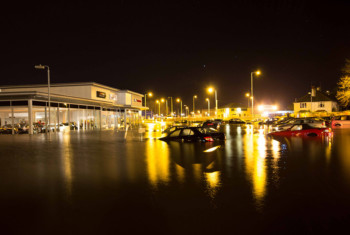Sara Mehryar

Sara is a research fellow at the Grantham Research Institute on Climate Change and the Environment, at the London School of Economics and Political Science. Her research is mainly focused on supporting decision-making and governance of climate change adaptation and resilience. Sara applies various tools and methods including mental modelling, social simulation, resilience assessment, and policy analysis tools to understand adaptation behaviours and identify ways to improve resilience of communities against future climate risks.
Sara leads the LSE research activities within the Zurich Climate Resilience Alliance (2025-2027 with a possible extension until 2035), funded by Z Zurich foundation. The Alliance is a multi-sectoral collaboration involving research institutes, NGOs, and the private sector, aimed at enhancing the resilience of local communities in both developed and developing countries against multiple hazards. LSE’s research focuses on:
- Adaptation Governance: to investigate global trends in adaptation legislation, including best practices and persistent gaps, and identifying enabling conditions to strengthen adaptation policies across countries, and
- Adaptation to multi-Hazards: understanding resilience to multi-hazards and prioritizing adaptation actions with maximum co-benefits and minimum unintended consequences for various climate hazards.
In addition, Sara has been a:
- Co-lead of ATTENUATE – creating the enabling condition for UK climate adaptation investment (Mar2025-Sep 2027) – funded by UKRI-Defra
- PI of A Multi-Hazard Approach Integrating Extreme Heat and Flood Adaptation Solutions in Kuwait (2024-26) – Funded by LSE Kuwait program
- PI of ELEVATE – Early Career Researchers’ Initiative for Strengthening Women’s Climate Resilience (Jan 2025-Dec 2025) – funded by British Council
- Co-I for Ai-Assisted Resilience Governance Systems (ARGOS) (2021-22) – funded by the UKRI TAS-hub
- Co-I for Learning from the Past to Build a Better Future: Supporting Urban Flood Resilience in Kuwait Through a Forensic Analysis of the 2018 Flash Floods (2021-23) – funded by the LSE Kuwait programme
- Researcher for Zurich Flood Resilience Alliance program at LSE (2018-2023) – funded by Z Zurich foundation
- Researcher for Infectious Disease decision-support Tools and Alert systems (IDAlert) (2023-2026) – funded by EU’s Horizon Europe Research and Innovation initiative
- Researcher for Place-Based Climate Action Network (PCAN) (2022-24)
- Member of the management committee of the European Social Simulation Association (ESSA) (2022-24)
Background
Sara completed her PhD in Urban and Regional Planning and Geo-information Management at the Faculty of Geo-Information Science and Earth Observation, University of Twente, Netherlands. She also holds an MSc in Urban Design and Planning from Delft University of Technology (TU Delft), Netherlands, and a BSC in Architecture from the University of Guilan, Iran.
Research interests
- Decision-making and governance of climate adaptation
- Resilience in multi-hazard scenarios
- Interdependencies in climate-related risks and actions
- Co-benefits and unintended consequences of adaptation actions and policies
- Social simulation and mental modelling
Research
Research - 2025
This study looks at how different factors and responses to heatwaves interact, using the UK's 2022 heatwave as a case study. Read more

This paper, based on expert interviews and focus groups with key decision-makers considers the implications of July 2022 heatwaves in the UK. Read more

This paper investigates the interactions between physical and transition risks on the sub-national level for petroleum-based economies. Read more

Research - 2024
This book constitutes the refereed Proceedings of the 24th International Workshop on Multi-Agent-Based Simulation XXIV, MABS 2023, held in London,... Read more

This paper provides an empirical illustration of then ‘climate change risk reduction trap’ using the example of flash flood risk in Kuwait, a wealthy petroleum-based economy in the Middle East, and shows how decisions on urban planning and economic restructuring have increased flash flood risk. Read more

The authors of this paper adopt a risk governance perspective to analyze the role of AI in supporting decision-making for climate adaptation, spanning risk assessment, policy analysis, and implementation. Read more

This paper analyses the UK’s response to the heatwaves of summer 2022, using a combination of Forensic Disaster Analysis and Fuzzy Cognitive Mapping. Read more

This paper proposes a decision support tool aimed at prioritizing context-specific interventions that enhance stakeholder interactions in disaster management. Read more

Research - 2023
The authors of this people propose a framework for the co-production of policy-relevant indicators and decision-support tools that track past, present, and future climate-induced disease risks across hazard, exposure, and vulnerability domains at the animal, human, and environmental interface. Read more

Research - 2022
This analysis shows that urban flood resilience as a concept has evolved over the last two decades. From an engineering concept with a strong focus on ensuring that the built environment can withstand a flood to a more recent definition as a transformative process with the aim to enable all parts of the urban system to live with floods and learn from previous shocks. Read more
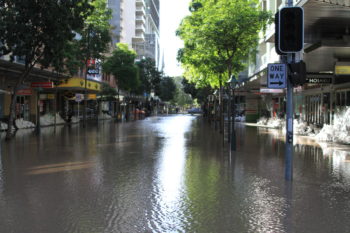
The authors of this paper offer a critical review and an assessment of approaches to climate and disaster resilience measurement with a particular focus on three issues: (1) the consideration of compounding socioeconomic and climatic risks in approaches to resilience measurement; (2) the methodological and technical aspects of resilience measurement; and (3) the application and practicability of resilience measurement across various contexts to reliably inform decision-making processes. Read more
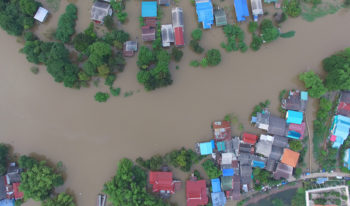
The authors of this paper investigate how methods used to model perceptions and measure resilience can help decision-makers create inclusive and proactive flood resilience strategies for communities. Read more
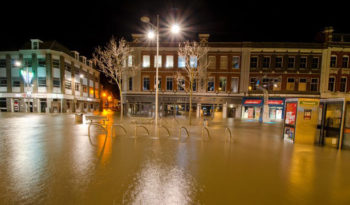
To consolidate the GAM field, the authors of this paper propose recording the design and implementation of studies that combine games and agent-based models by using a dedicated documentation scheme. Read more

Research - 2021
This paper investigates how methods used to model perceptions and measure resilience can help decision-makers create inclusive and proactive flood resilience strategies for communities, using a case study of Lowestoft, Eastern England. Read more

Many approaches and tools have been developed and used to measure climate resilience in cities. The authors of this study explore if and how such tools can be or have been used to support decision-making for building urban climate resilience. Read more

This study explores how and to what extent tools to measure urban climate resilience can be or have been utilised by city-level actors to support their decision-making processes for building resilience. Read more

In the context of climate change adaptation, there has been a recent research focus on the impact of flood insurance... Read more

Research - 2020
Flood risk is increasing across the world due to climate change and socio-economic development, calling for a shift from traditional... Read more
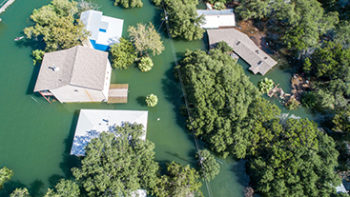
We call for attention to climate change research as a domain of application for multiagent technologies. The multiagent nature of... Read more

Social-ecological systems (SESs) i.e., systems linking human behavior and environmental dynamics, are characterized as complex, dynamic, and heterogeneous systems. A... Read more

One of the main challenges in Agent-Based Modeling (ABM) is to model agents’ preferences and behavioral rules such that the... Read more

This paper explores the role of national laws in determining the nature of flood risk management (FRM) and in particular the ability to increase flood resilience in the context of climate change. The authors therefore call for a shift in FRM away from post-event activism towards forward-looking planning through an anticipatory resilience approach. Read more
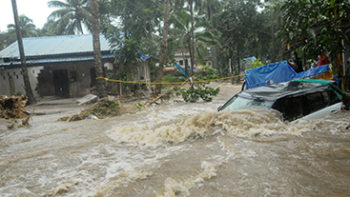
Research - 2019
Abstract Policy making for complex (SESs) is a multi-factorial and multi-stakeholder decision making process. Therefore, proper policy simulation in a... Read more

The authors of this paper develop an integrated modelling methodology combining an Agent-Based Model with Fuzzy Cognitive Mapping and use it to simulate impacts of policy options addressing the problems of water scarcity for a farming community in Rafsanjan, Iran. Read more

Policy
Policy - 2025
Event note from the inaugural ‘Adeline Talks’ workshop which brought together experts to discuss the establishment of a National Heat Risk Commission for the UK. Read more

Policy - 2024
A short guide to support the design of work that analyses policies at different scales and uses insights to inform influencing work, originally created for Zurich Climate Resilience Alliance country teams but with wider applicability. Read more
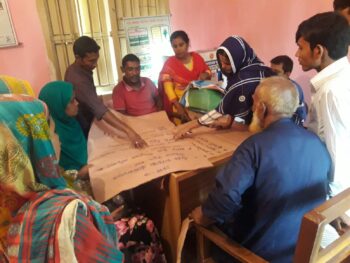
This is a response to an open consultation on proposed reforms to the National Planning Policy Framework and other changes to the planning system. Read more

This report presents insights on heat resilience policy and practice in the UK to inform future preparedness and responses to extreme heat, incorporating the experiences and views of decision-makers and practitioners who worked on the frontline of the 2022 heatwaves across England. Read more

Policy - 2023
This report consists of a submission to the call for evidence by the Environmental Audit Committee on heat resilience and sustainable cooling. Read more

Policy - 2021
A submission based on work from across the Grantham Research Institute to the FCDO's recent call for evidence to inform the UK's forthcoming International Development Strategy. Read more

Written evidence submitted in 2020 to the House of Commons Environment, Food and Rural Affairs Committee Inquiry on Flooding, whose Fourth Report was published on 8 February 2021. Read more
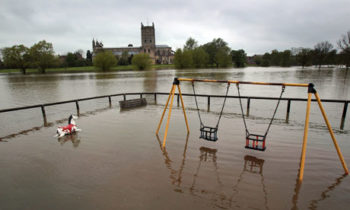
To address increasing disaster risk, an urgent shift is needed in disaster risk management (DRM), from post-event action towards forward-looking... Read more

Policy - 2020
Part of a comprehensive review of flood risk management in mature economies, this report looks at the system in England, where insurance take-up is high and climate change is taken into account. Read more

Policy - 2019
This submission was made to the Environment Agency's consultation on its draft strategy for flood and coastal risk management in England, and draws on the Grantham Research Institute's work and expertise over many years in this area. Read more
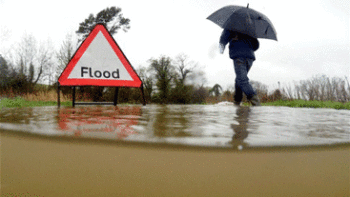
This paper summarises the Institute's submission to the Department for Environment, Food and Rural Affairs’ call for evidence on policy direction to prepare the UK for flooding and coastal erosion, drawing on a decade of work by the Grantham Research Institute with the insurance industry and policymakers addressing issues around climate change and adaptation. Read more

Books
Books - 2024
This book constitutes the refereed Proceedings of the 24th International Workshop on Multi-Agent-Based Simulation XXIV, MABS 2023, held in London,... Read more

News
News - 2023
Sara Mehryar and Swenja Surminski were awarded the fifth Jose Maria Sarriegi scientific dissemination prize for the article ‘Investigating flood resilience perceptions and supporting collective decision-making through fuzzy cognitive mapping’,published in 2022 in the journal ofScience of the Total Environment. Read more
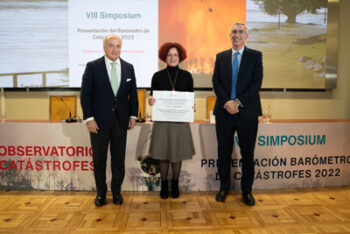
The Lancet Regional Health – Europe journal published a scientific paper on 7 August 2023 authored by a distinguished team... Read more
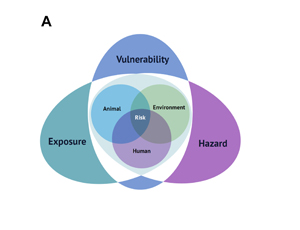
News - 2022
When it comes to bolstering community resilience in flood-prone communities, building public awareness is at least as important as flood defences, argues Sara Mehryar, reporting on recent research by the Grantham Research Institute in Eastern England. Read more
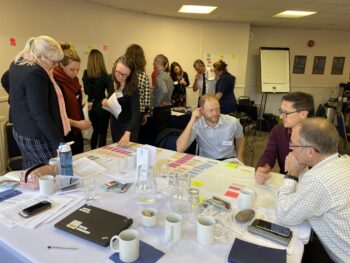
News - 2020
Although current risk reduction attention is on COVID-19, climate change-related hazards such as flooding continue to have impacts around the world. This commentary evaluates new announcements on flood protection for England and reports on work by the Grantham Research Institute and partners on the Suffolk coast. Read more
